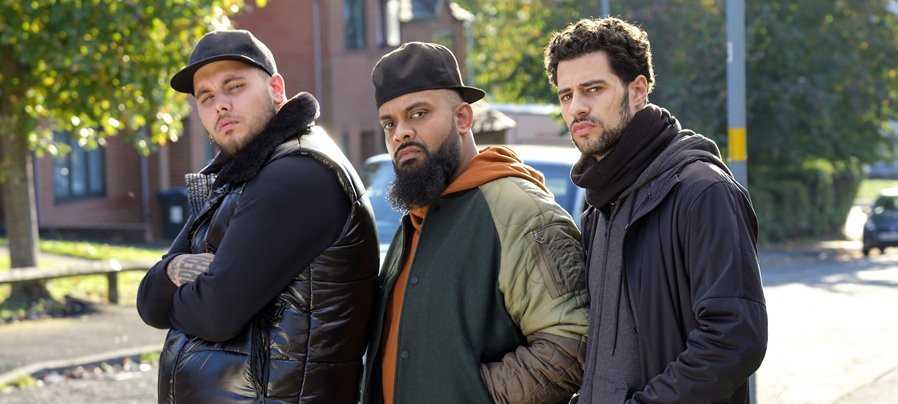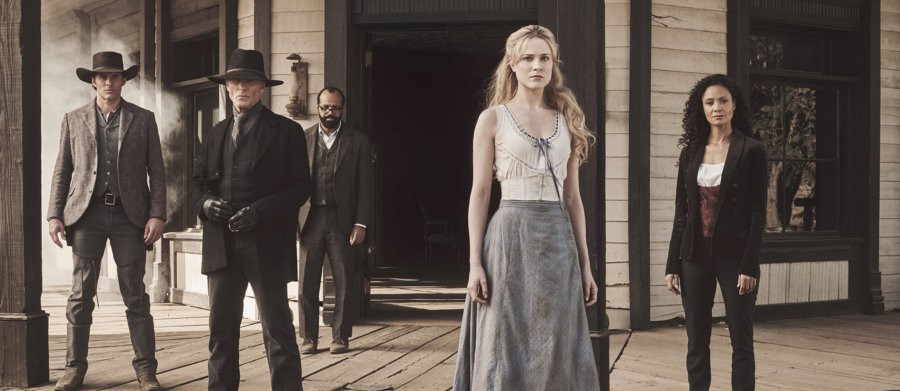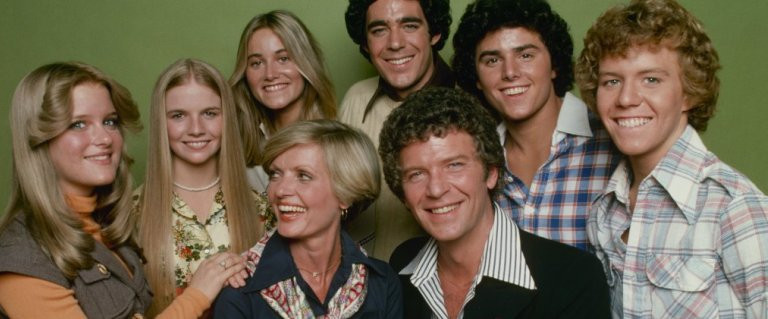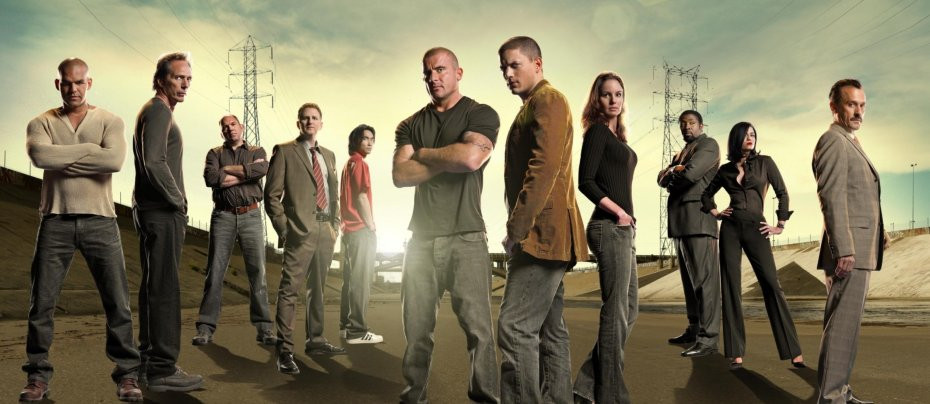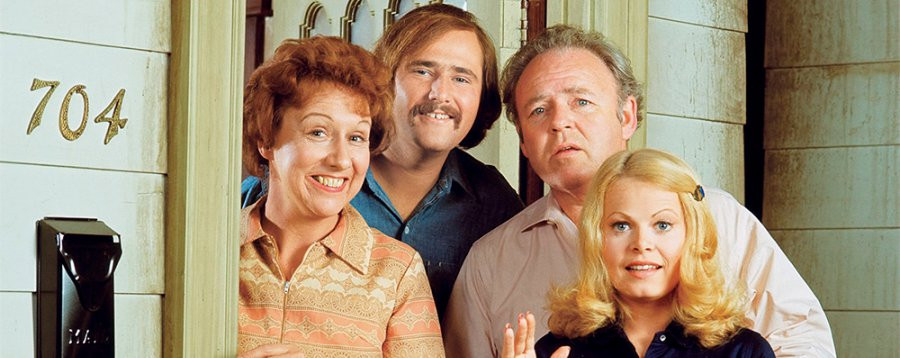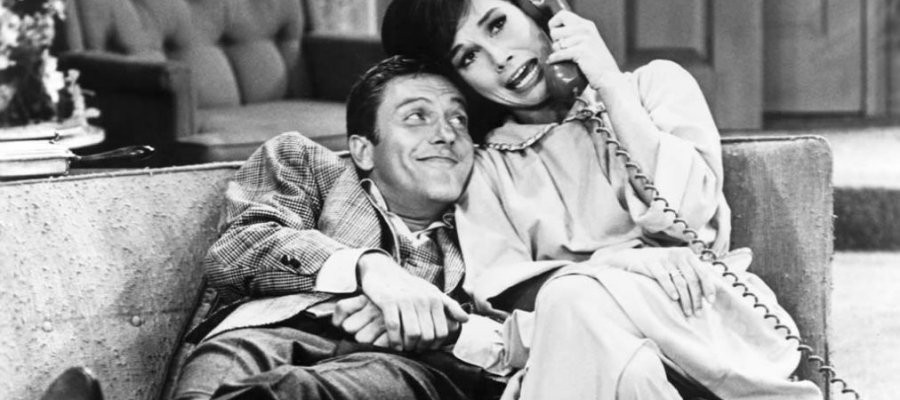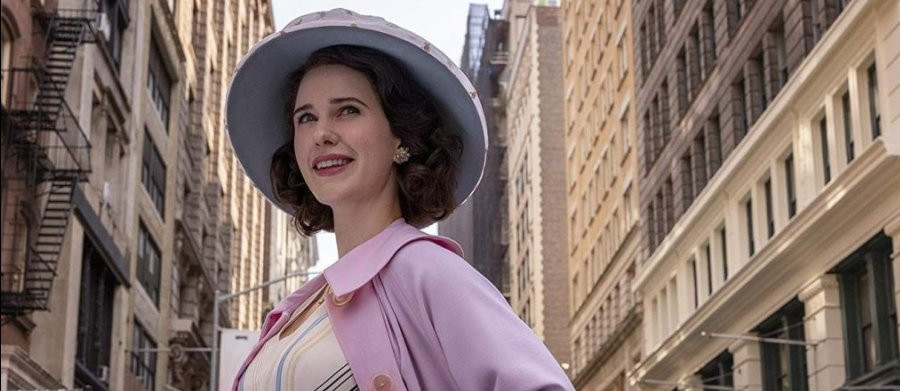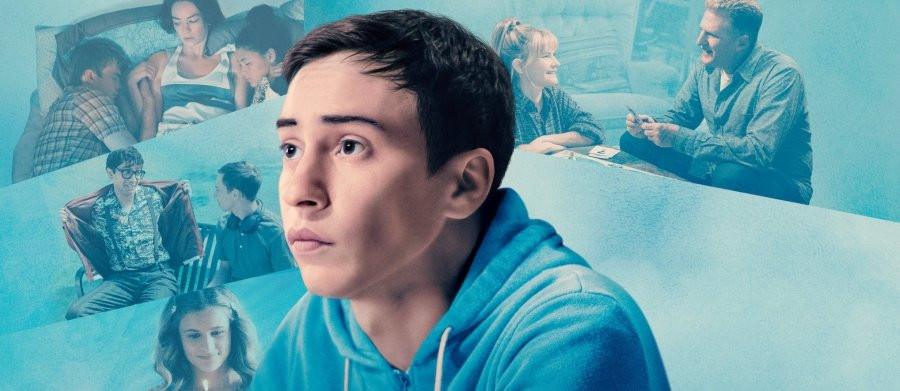
Atypical
2017 - United StatesAtypical is a suitable title for Jennifer Jason Leigh and Robia Rashid's Netflix comedy drama series. Although structured as a typical sitcom, in half-hour episodes often under smirk-inducing titles like “The D-Train to Bone Town” or “Penguin Cam and Chill,” Atypical is much cleverer, subtler and more heartfelt than this suggests. While autism has become a popular subject for both comedy and drama, rarely has it been explored with more honesty and positivity than on Atypical.
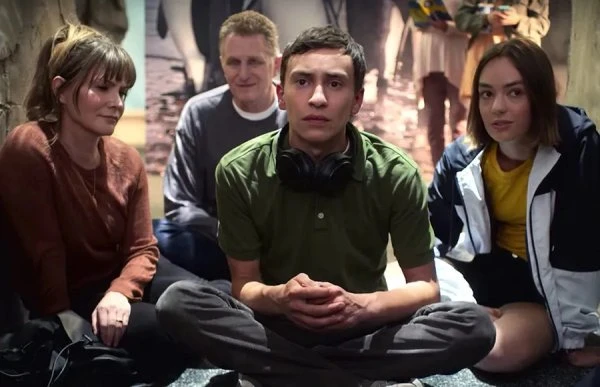
The series, which recently released its fourth and final season, focuses on Sam Gardner, an eighteen-year-old student with the Autism Spectrum Condition. A classic coming-of-age story, Atypical sees Sam grow up considerably over the months that the series spans, learning to accept his strengths, allow for and overcome his weaknesses, and break away from home into the wider world. Played by Keir Gilchrist, an actor-musician known for roles in the comedy series The United States of Tara (which also dealt with neurodiverse central characters) and films such as the thriller The Good Neighbour and the acclaimed horror It Follows, Gilchrist put in a great deal of research before taking on the role, honing a performance as a young man with an ASC that develops across the seasons as the character does.
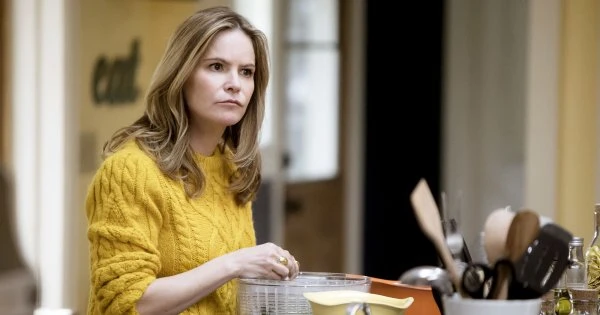
Although Sam's story is at the centre of the series, it's Jennifer Jason Leigh who gets top billing. Partly this is because, as well as playing Sam's mother Elsa, she's the producer of the series, but also, she's easily the biggest name in the cast. A bona fide movie star, critically acclaimed for her roles in The Hateful Eight, Georgia, Eyes of a Stranger and Single White Female among much more. Elsa's need for routine and structure and her attention to detail suggest that she may also be on the spectrum, something which is repeatedly hinted at but, surprisingly, never fully explored. Elsa is deeply devoted to her family, often going too far and becoming overbearing, and her focus on Sam over the years has led to a distance between her and her daughter.
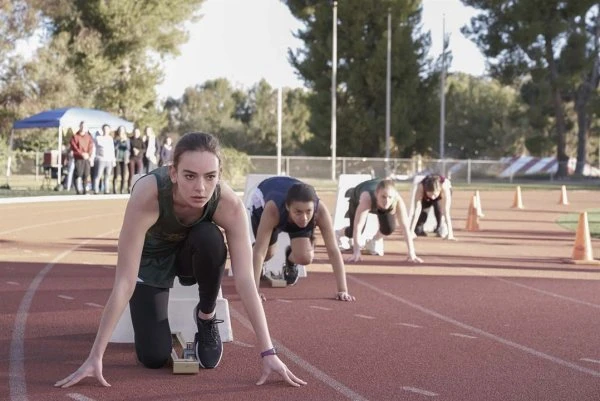
Brigette Lundy-Paine, in her breakout role, plays Sam's younger sister Casey. In spite of being two years younger than him, Casey is far more mature than Sam in many ways and consistently looks out for him at school, while reliably teasing him at home. While they fall out plenty – explosively, sometimes – Casey is very protective of Sam and he, in his way, is just as protective of her. Casey is an up-and-coming athlete, whose track skills lead to her gaining a scholarship at a prestigious private school, something that leads to huge changes in her life and attitude to herself as she struggles to fit in and has to make big choices about her future. Lundy-Paine, who has since gone on to a star turn in Bill and Ted Face the Music, is exceptional as Casey. Intelligent, deep yet infectiously likeable. Theirs is the stand-out performance of the series.
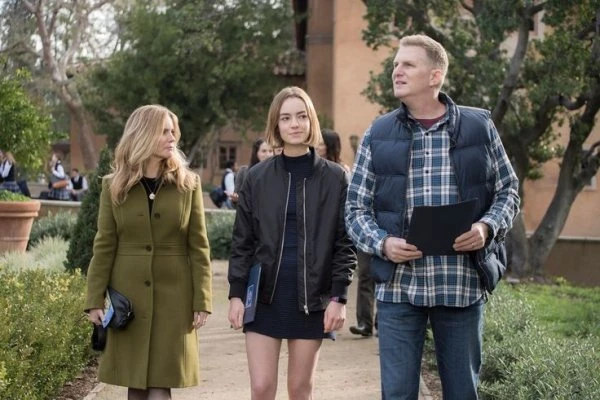
The prolific Michael Rapaport plays Doug, the man of the house, an old-fashioned and straightforwardly masculine sort of guy. About the only thing he has in common with Sam is a dislike of talking about feelings, having had a tough time relating to his son over the years and even briefly walking out on them after Sam's autism was diagnosed as a child. In contrast, though, he has a very close relationship with Casey, taking enormous pride in her achievements, something which can tip over into pressuring her to compete. Rappaport, immediately recognisable from credits as broad as True Romance, Boston Public, Prison Break and The 6th Day, is immensely likeable as Doug in spite of the character's flaws. He and Casey have what would be a stereotypical jockish father-son relationship if Casey were a boy; over the course of the series, he learns to adapt his expectations of a son and forms a strong bond with Sam.
Atypical has received praise and criticism in equal measures for its presentation of an autistic lead character. Sam displays characteristics which are stereotypically associated with people on the spectrum, particularly males. He is detail-focused, honest to a fault, bases his life on rules and routines and struggles to understand the subtleties of human interaction. He also displays the obsessive nature autistic people are often characterised with, his particular obsession being Antarctica, and penguins specifically. In spite of Gilchrist's skill in depicting someone with these traits, there was a backlash early in the series' release, with both people on the spectrum and those who have raised them. Many saw the character as cliched and perpetuating stereotypes, or simply getting autism wrong. On the other hand, just as many recognised themselves or their loved ones in Sam. Routines, rituals, extreme focus interests and obsessive-compulsive behaviours are commonly associated with some ASC's but are neither ever-present nor limited to people with autism.
After all, not only is autism a broad spectrum of conditions, but those on the spectrum are all individuals. Stereotypes can be harmful, but they do come about for a reason, and many of Sam's traits are commonly displayed by people with an autism spectrum condition. Others, however, display the condition very differently. So of course, some people with an ASC will recognise themselves in the character, while others will see him as misrepresenting them. It's a risk taken in any fiction that features a member of a minority group; they inevitably end up seen as a representation of the entire group, in spite of the endless variety of people within that group.
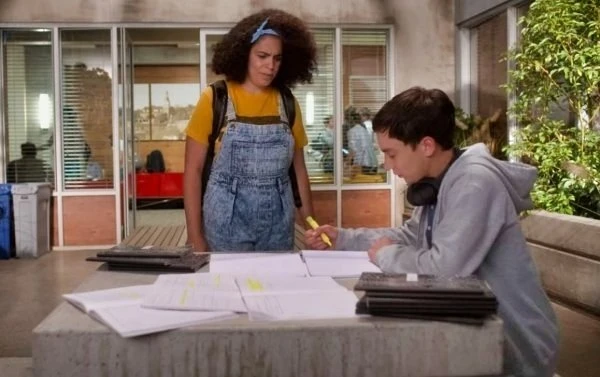
One criticism that is certainly valid is the lack of real people on the spectrum in the first season. The series' creators took this on board and remedied this from the second season onwards, featuring several actors with an ASC. Many of these were part of Sam's regular peer group meetings, where young people with an ASC discussed the challenges and successes of their everyday lives. Some of these characters, such as Justin (Dominique Brown), continue as recurring characters in later series, while other characters joined later, such as Sam's college friend Abby (Kimia Behpoornia). The differences and similarities in both the actors and their characters fights hard against the idea that there's a single, stereotypical presentation of autism.
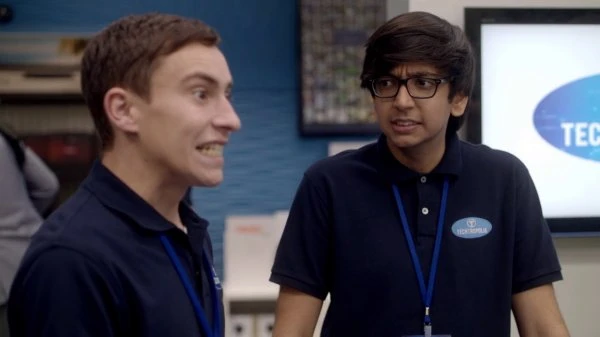
For his part, Gilchrist portrays Sam with a subtlety and good humour that makes his character relatable and sympathetic, and very likeable. In the first season, Sam, like many an eighteen-year-old boy, is motivated mainly by getting a girlfriend and losing his virginity. He's spurred on by his best friend Zahid, who works with him at the electronics store Techtropolis. Played by Nik Dodani (Wet Hot American Summer), Zahid is a geeky but randy young lothario; he's a bit of a creep, but a loveable one. For all his suspect sex and relationship advice, Zahid is a genuinely good friend to Sam throughout the show's four seasons, never treating him as anything less than an equal, and Sam's growing ambitions help kick Zahid off his coasting path in life too. While there's plenty of sex talk amid Sam's quest to get his end away, this isn't American Pie; things remain (mostly) tasteful and Sam learns that there is more to growing up than sex.
That's not to say he doesn't see his share of the action (“I just got a hand job in an igloo!” being one of the most triumphant lines in the show), and he eventually finds love. Throughout the series, he has an on-again, off-again relationship with his schoolmate Paige. Played by Jenna Boyd (The Missing, The Sisterhood of the Traveling Pants), Paige is a relentlessly optimistic, secretly angry, ambitious go-getter, who faces a few hard truths as she grows up and things don't go entirely to plan. She is, though, incredibly supportive and understanding of Sam, and their relationship is really very sweet.
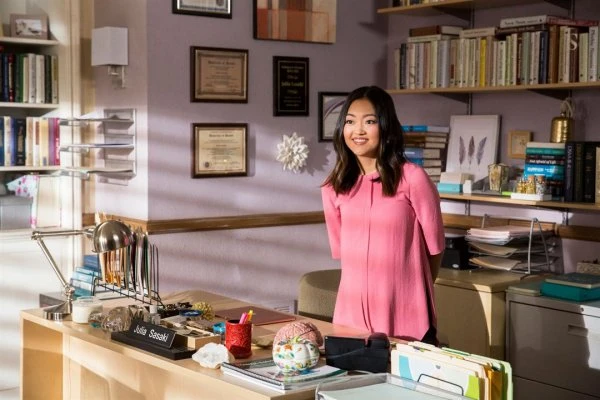
In the first season, though, this is derailed by Sam's obsession with his therapist Julia. Played by Amy Okuda (The Guild, The Man in the High Castle) Julia is supportive of Sam but becomes over-familiar with him, leading him to develop an unhealthy interest in her. Sam's therapy sessions provide a mechanism for him to address the audience and explain his thought processes in the first season, something that gets glossed over in the later ones, and while the therapy ends when Sam's interest in Julia steps over the line, she remains a recurring character.
On the surface, Atypical is about life with autism, but it's also about family (and also penguins). It's the dynamics of the Gardner family, which shift and change over the four seasons that are at the heart of the story. What's gratifying is that, unlike some productions with autistic characters, this isn't a story about how awful it is to raise a child with an ASC. Yes, it comes with challenges and can prove hard for the family, but life with Sam is also rewarding and eye-opening.

As Sam grows up and develops more independence, and Casey becomes more mature as well, Elsa loses herself, having defined herself primarily as their mother for so long. This, along with her growing distance from Doug, leads to an ill-advised affair in the first season, which has ongoing repercussions through the series. It's dealt with sympathetically, understandingly and with a realism that is refreshing, always accepting that yes, that was wrong, but there were reasons behind it. Doug, for himself, is forced to reassess his own place in the family and grows closer to Sam than he had ever allowed himself to be. While all the characters in the show learn something from Sam's way of looking at things, it's Doug who is perhaps the most directly changed by him.
Casey, too, goes through huge changes, learning about who she is and what she wants from life. Moving to the posh new school is a tough rite of passage for her, and to begin with she is ostracised by both her old friends and the track team at the new school. Her romantic life goes through some ups and downs as well. To begin with she enters a relationship with former troublemaker Evan (he was kicked out of her school for stealing a tuba). Played by Graham Rogers (Quantico), Evan is a terribly sweet and insecure young man who, after the traditional fatherly hostility, becomes good friends with Doug. Casey, though, grows closer to her friend (and former bully) Izzie. Another girl on scholarship, and from a neglectful background, Izzie (played by Fivel Stewart, T@gged, Dante's Cove) is volatile and changeable, but she and Casey eventually fall for each other. Casey's acceptance of her sexuality coincides with her and Izzy's protest against their school's gendered uniforms, and also Lundy-Paine's real life coming out as non-binary.
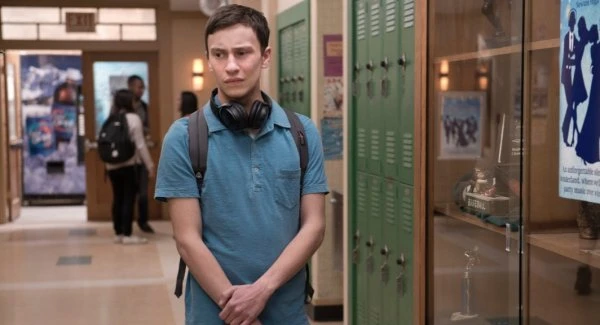
While Sam is motivated in the first season by his desire to have sex, as the series goes on his goals become more mature and he moves on to college, takes steps to moving out of home, and gradually finds real independence and the maturity to make difficult decisions. The silliness, puerile jokes and obsession with penguins never goes away though. Robia Rashid (How I Met Your Mother, The Goldbergs) acted as showrunner and head writer, bringing in an increasingly diverse team of writers and directors as the series went on. The result is a series with real heart, humour, intelligence and pathos. As someone who grew up in a family with an autistic sibling, and recognising more than a couple of traits in myself, Atypical hits a hard relate more than once. The final season gets noticeably sillier, with the characters thrown into more sitcom-like situations, but this is balanced by more serious dramatic developments. Hilarious and tear-jerking by turns, Atypical is a truly heart-warming series with fine writing, exceptional acting and a lot of penguins.
Review: Daniel Tessier
Dan describes himself as a geek. Skinny white guy. Older than he looks. Younger than he feels. Reads, watches, plays and writes. Has been compared to the third, fourth, fifth, sixth, seventh, eighth, tenth, eleventh and twelfth Doctors, and the Dream Lord. Plus Dr. Smith from 'Lost in Space.' He has also had a short story published in Master Pieces: Misadventures in Space and Time a charity anthology about the renegade Time Lord.
Dan's web page can be here: Immaterial
Seen this show? How do you rate it?
Seen this show? How do you rate it?
Published on August 25th, 2021. Written by Daniel Tessier for Television Heaven.


